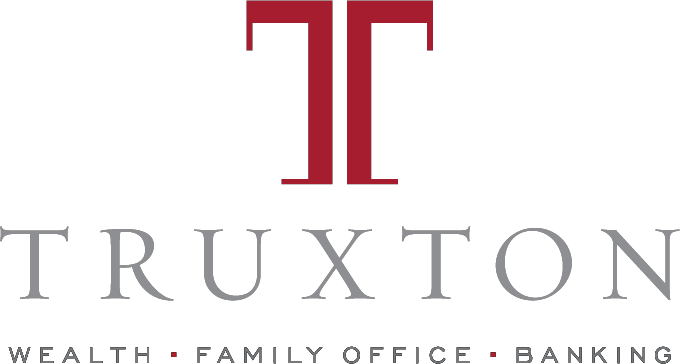Corporate Transparency Act Presents Unique Opportunity for Trust Planning

When many people think of money laundering, their first thought probably is not a Tennessee business organization. Due to some bad actors though, business organizations registered in Tennessee and all other states now face increased scrutiny from the federal government. The greatest impact of this additional oversight may be the loss of privacy for some business owners.
From the end of 2022 until March 2024, the number of business entities registered in Tennessee declined from 486,000 to below 410,000.[1] Per the most recent Tennessee Quarterly Business and Economic Indicators Report for the first quarter of 2024, new filings for all business entities fell by eight percent.[2] The data suggests that fewer businesses are registering and remaining registered in Tennessee. This news is troubling, especially on the heels of impressive growth in business formations coming out of the pandemic. Further, it raises the question of why. One possible explanation is the enactment of the Corporate Transparency Act.
The Corporate Transparency Act (“CTA”) took effect on January 1, 2024 and requires certain types of business entities (“reporting companies”) to report certain beneficial ownership information to the Financial Crimes Enforcement Network (“FinCEN”).[3] The CTA aims to prevent usage of certain business entity structures to shield financial crimes, such as money laundering and financing illicit activities.
The CTA designates two types of reporting companies: domestic reporting companies and foreign reporting companies.[4] Domestic reporting companies are entities created in the US by filing a document with a secretary of state or similar office. Foreign reporting companies are entities formed outside the US but have registered with a secretary of state or similar office to do business in the US.
FinCEN requires a reporting company entity to report (1) its legal name, (2) any trade names, “doing business as”, or “trading as” names, (3) the current street address of its principal place of business if the address is in the United States, (4) its jurisdiction of formation or registration, and (5) its Taxpayer Identification Number.[5]
In addition to reporting information about the entity, reporting companies must report information about their beneficial owners, which the CTA defines as “an individual who either directly or indirectly: (1) exercises substantial control over a reporting company, or (2) owns or controls at least 25 percent of a reporting company’s ownership interests.”[6] Beneficial owners must be natural persons. Although the CTA does not define “substantial control”, two key indicators are (1) authority over the appointment or removal of any senior officer or dominant majority of a board or similar body of a reporting company, and (2) direction, determination, or decision of, or substantial influence over important decisions made by a reporting company.[7]
For each beneficial owner, a reporting company must report: (1) the individual’s name, (2) date of birth, (3) residential address, (4) an identifying number from an acceptable identification document (e.g., passport, U.S. driver's license) and the name of the issuing state or jurisdiction of the identification document, and (5) an image of the identification document used to obtain the identifying number.[8]
The CTA also established compliance deadlines for new and existing business entities subject to the law’s reporting requirements. If the company/entity existed prior to January 1, 2024, it must file its initial ownership information report by January 1, 2025. If the entity was created or registered on or after January 1, 2024, and before January 1, 2025, it must file its initial beneficial ownership information report within ninety calendar days after receiving actual or public notice that its creation or registration is effective. All companies/entities created after January 1, 2025 must file their initial beneficial ownership information report within 30 calendar days after receiving actual or public notice that their creation or registration is effective.[9] Any person who fails to report under the CTA is subject to civil penalties up to $500 per day that the violation continues and criminal penalties, including a fine not exceeding $10,000 and imprisonment up to two years.[10]
Understandably, many people may have concerns about disclosing their personal information to the government via an online portal. Per FinCEN, the beneficial ownership information submitted to FinCEN will not be publicly available.[11] The CTA allows limited disclosure exceptions of beneficial owner information upon request by certain U.S. federal agencies, financial institutions, and regulatory agencies to facilitate national security, intelligence, and law enforcement activities. Additionally, the CTA allows disclosure to private financial institutions to confirm beneficial ownership information and facilitate those institutions’ compliance with anti-money laundering, countering terrorism financing, and customer due diligence requirements. The IRS may also access the beneficial ownership information for tax administrative purposes.[12] So, although the information submitted to FinCEN is not “publicly available,” the information could be disclosed to governmental and some private entities.
Although business entities can and have been used for illicit purposes, business entities such as LLCs, limited partnerships, and corporations offer many benefits and serve countless legitimate purposes. One of those purposes, prior to the CTA, was privacy. Many entity forms were not required to disclose ownership information. That is no longer the case after the CTA’s enactment.
Not all hope is lost. There are currently twenty-three exceptions to reporting, most notably the exemptions for statutory trusts and banks operating under trust powers.[13] Due to the interests held in various business entities, however, some trusts may be required to report beneficial owner information.
For reporting companies that do not fall under an exception, there is some hope in maintaining privacy. Instead of reporting all required information, the CTA provides that a beneficial owner may instead obtain a “FinCEN identifier,” which is a unique identifying number that an individual uses for reporting in place of the required personal information.[14] Individuals may request a FinCEN identifier by completing an electronic web form at https://fincenid.gov and submitting the information required on a beneficial ownership information report. Reporting companies may request a FinCEN identifier by checking a box on the on the beneficial ownership information report upon submission (i.e., there is no way for a reporting company to initially file under a FinCEN identifier).[15]
With that backdrop, many people may not be satisfied with FinCEN’s privacy solution. Fortunately, there are other ways to preserve privacy without first providing information to FinCEN. For illustrative purposes, let’s look at a hypothetical.
Jim is a fictional character who is a real estate developer in Tennessee. He owns several commercial and residential properties all of which are currently owned by an LLC, where Jim is the single managing member. He chose the LLC form for the limited liability protection and to keep his ownership status out of public records that are often accessible online. Jim maintains a low profile and does not want others to know about what he owns. As the managing member of the LLC, Jim filed articles of organization with the secretary of state, making his LLC a domestic reporting company under the CTA. Additionally, Jim pays Tennessee franchise and excise tax and is required to file an annual report with the secretary of state. Like many other individuals, Jim wants to know his options.
Estates and trusts are not reporting companies because they are not formed by filing a document with a secretary of state. If an estate or trust holds an interest in a reporting company, the executor, trustee, settlor, and/or beneficiaries may be considered beneficial owners of the reporting company. Therefore, transferring the LLC interest to a trust may not be enough to overcome the CTA’s reporting requirement.
One potential option is a Tennessee Investment Services Trust (TIST), which is a self-settled trust that allows the creator of the trust to maintain significant access and control over the trust property without maintaining legal ownership. The TIST is an asset protection trust that makes Tennessee a top-tier trust situs. A TIST protects the trust’s assets from creditors after eighteen months, and it provides the grantor with the following powers: right to receive discretionary distributions of income and principal, right to receive five percent annually of the trust’s initial value or annual value as determined by the trust, right to veto trust distributions, right to remove trustee and appoint successor trustee, right to control investment decisions, and the power to direct how trust assets are distributed at the grantor’s death.[16] Additionally, TISTs do not require filing with the secretary of state, Tennessee franchise and excise taxes, nor annual reports. Therefore, TISTs are not reporting companies. In our example, Jim could explore the utilization of a TIST for his real estate holdings. In doing so he benefits from personal liability and creditor protection and maintains privacy.
Another option for married couples is a marital asset protection trust which creates tenancy by the entirety ownership in trust assets. Such ownership protects trust assets from claims for each spouse’s separate creditors while both spouses are living. Additionally, the surviving spouse’s separate creditors may only attach trust assets to the extent that the surviving spouse remains a trust beneficiary and has the power to vest title in his/her individual name.[17] With proper planning, the surviving spouse may continue to enjoy creditor protection from trust assets, even after the first spouse’s death.
LLCs and other business entities will continue to play a pivotal role in Tennessee’s (and other states’) economies. Unfortunately, the CTA takes away some of the privacy that historically accompanied business entity formation, and it adds yet another wrinkle in the sometimes-complicated process of business planning. Despite the recent decline in the number of business entities, there are still over 400,000 registered business entities in Tennessee. Many of these entities will be required to file beneficial ownership information under the CTA. As we near the year-end filing deadline for most existing business entities, we face the need to conform to the new CTA requirements but also see planning opportunities using certain trusts. If you have questions about the CTA or strategic business planning, we’d love to have a conversation.
[1] Tenn. Sec. of State, Tenn. Quarterly Bus. & Econ. Indicators Rep., May 2024, available at https://sos-prod.tnsosgovfiles.com/s3fs-public/document/2024%20Q1%20Quarterly%20Indicators%20Report.pdf?VersionId=610rvybDlnK1OgZU0dPB9eLxBCnf1q8V.
[2] Id.
[3] 31 U.S.C. § 5336 et seq. (2022).
[4] 31 U.S.C. § 5336(a)(11)(A) (2022); 31 C.F.R. § 1010.380(c)(1) (2023).
[5] 31 U.S.C. § 5336(b)(2)(A) (2022).
[6] 31 U.S.C. § 5336(a)(3) (2022).
[7] 31 C.F.R. § 1010.380(d)(1)(i)(B), (C) (2023).
[8] U.S. Treas. Fin. Crimes Enf’t Network, OMB. No. 1506-0076, Beneficial Ownership Info. Rep. (2024).
[9] 31 C.F.R. § 1010.380(a)(1) (2023).
[10] 31 U.S.C. § 5336(h)(3)(a) (2022).
[11] U.S. Treas. Fin. Crimes Enf’t Network, Beneficial Ownership Info. Rep. Frequently Asked Questions (2024).
[12] 31 U.S.C. § 5336(c)(2) (2022).
[13] 31 U.S.C. § 5336(a)(11)(B) (2022).
[14] 31 U.S.C. § 5336(b)(3) (2022); 31 C.F.R. § 1010.380(b)(4)(i)(A) (2023).
[15] 31 C.F.R. § 1010.380(b)(4)(i)(B) (2023).
[16] Tenn. Code Ann. § 35-16-111 (2023).
[17] Tenn. Code Ann. § 35-15-510 (2023).



